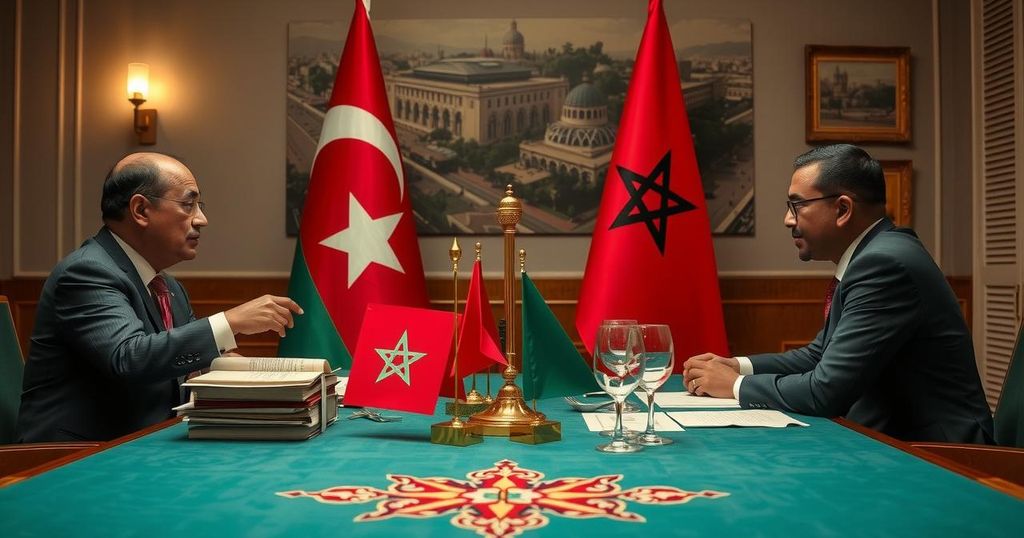Mohamed Takala Rejects Bouznika Meeting, Calls for Coordination with HCS
Mohamed Takala rejects a Morocco meeting involving the HCS and HoR, asserting that participants did not represent the HCS officially. He urges Libya’s Foreign Ministry to protest and coordinate future discussions to avoid political exploitation, reflecting ongoing internal divisions in Libya’s governance.
Mohamed Takala, the rival Head of Libya’s High Council of State (HCS), has publicly rejected the recent meeting held in Morocco that involved members from both the HCS and the House of Representatives (HoR). Takala expressed his stance by emphasizing that the participants lacked official representation from the HCS, leading him to demand that Libya’s Foreign Ministry formally address the situation with its Moroccan counterpart. He highlighted the necessity of coordinating any such meetings with the elected leadership of the HCS to avoid further political exploitation amidst ongoing internal divisions.
The meeting in Bouznika that included representatives from the HoR and HCS, and notably Khalid Al-Mishri, was reportedly focused on establishing a unified government and forming committees dedicated to resolving disputes concerning security, finance, and the economy. However, Takala’s rejection indicates a divergence from the United Nations mission’s agenda, which aims to reinvigorate the political process in Libya and encourage broader participation from various political factions in preparation for future elections.
The political landscape in Libya has been characterized by fragmentation and power struggles among different factions since the fall of Muammar Gaddafi in 2011. The High Council of State (HCS) and the House of Representatives (HoR) are two primary governing bodies, often at odds with each other. The recent attempt to unite these bodies in Morocco reflects ongoing international efforts, particularly by the United Nations, to facilitate dialogue and foster a path toward elections in Libya, an objective complicated by internal divisions and differing political agendas.
In conclusion, Mohamed Takala’s denunciation of the recent Bouznika meeting reveals significant tensions within Libya’s political framework. By calling for coordination with the elected leadership of the HCS, Takala underscores the complexities of unifying differing factions under a common governance strategy. This situation highlights the broader challenges faced by international mediators as they seek to navigate Libya’s fraught political environment toward prospective elections.
Original Source: libyaobserver.ly




Post Comment